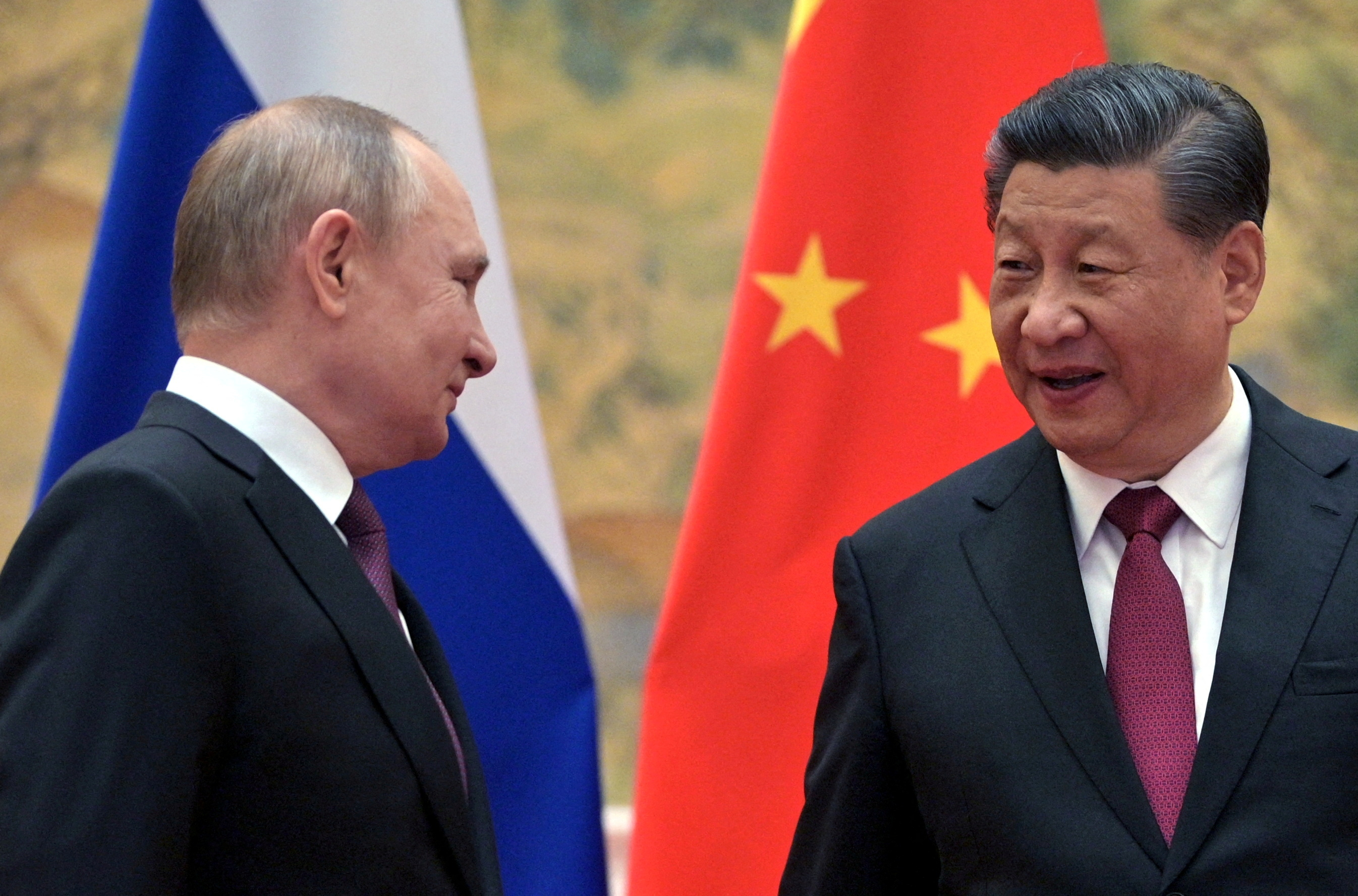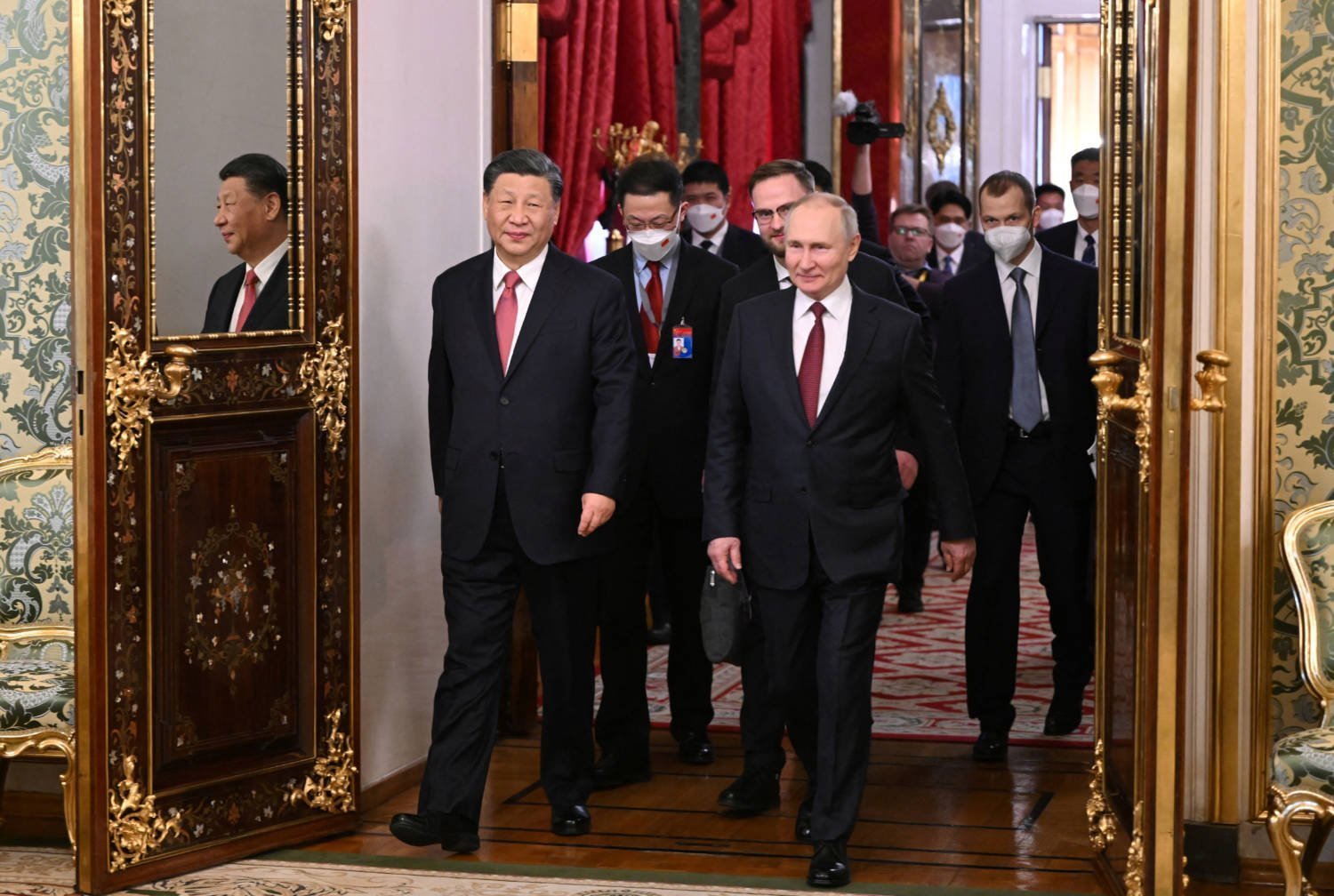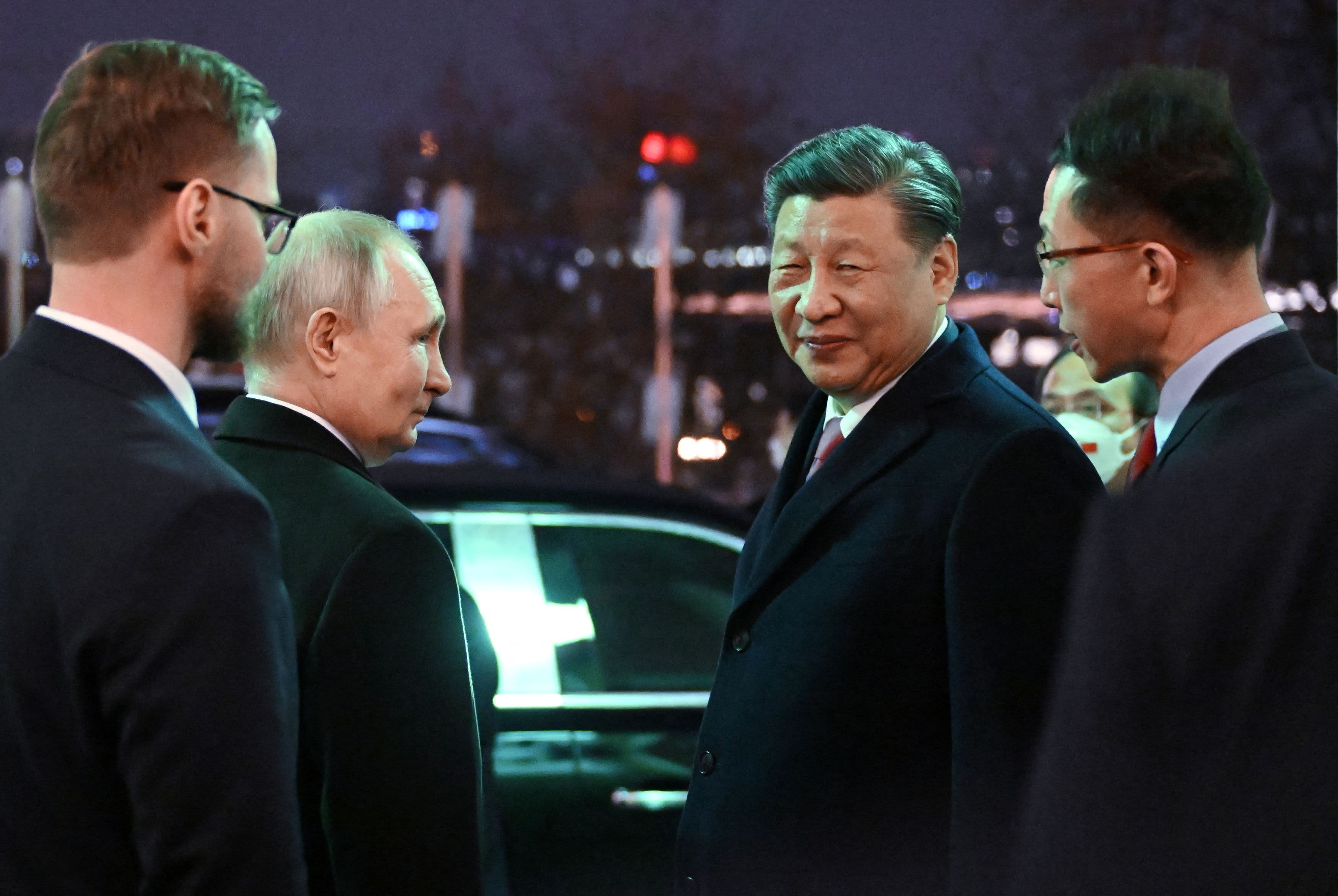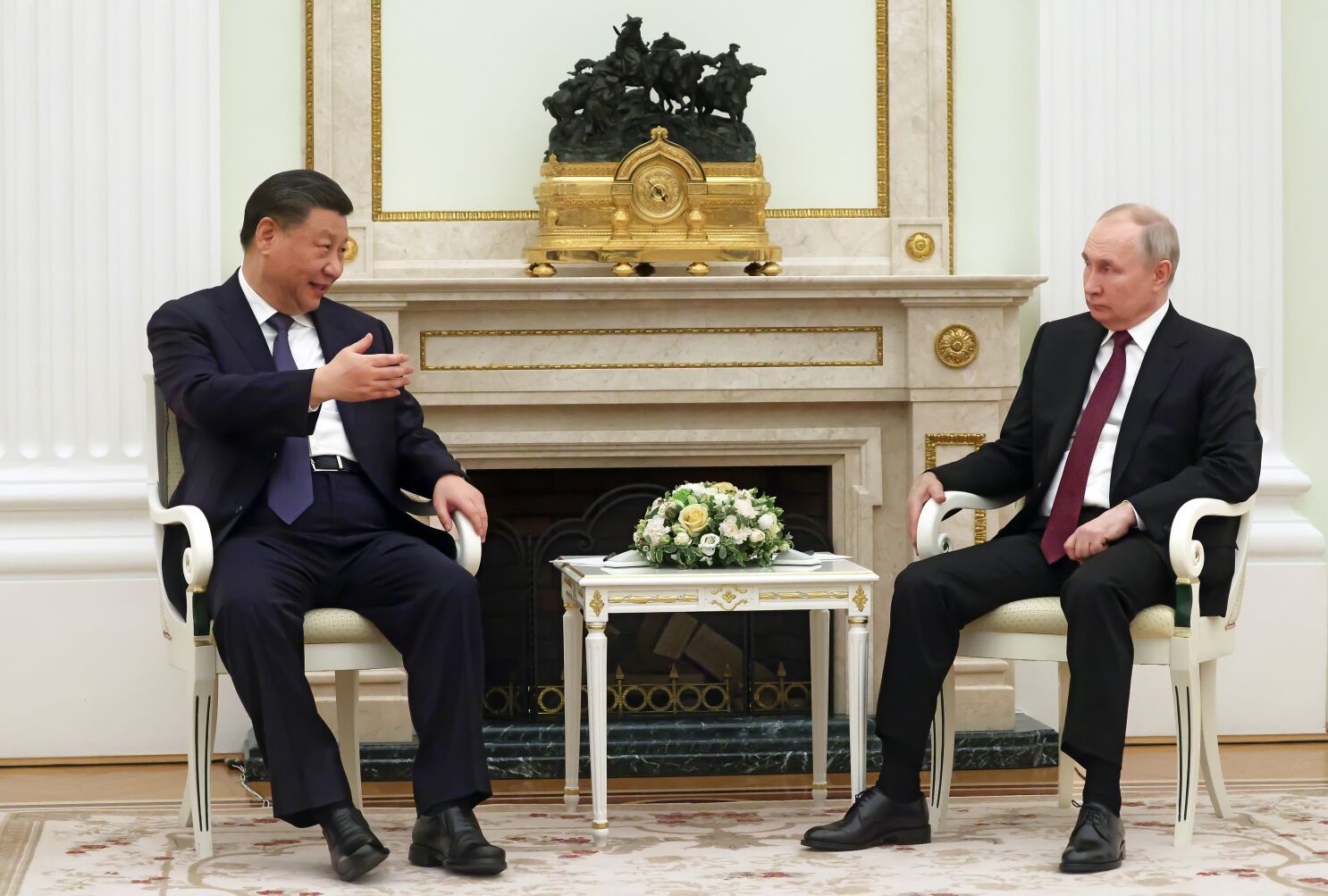Putin Tells Xi That Russia Wants Chinese Companies To Take The Place Of Western Ones.
Putin declared that by 2030, Russia will send at least 98 bcm of gasoline to China. Following Putin's "clarifications" about Moscow's position during their initial meeting, the Russian and Chinese presidents were scheduled to have a detailed discussion about the Ukraine crisis.

During discussions at the Kremlin, President Vladimir Putin reminded Chinese leader Xi Jinping that Moscow is prepared to help Chinese businesses replace Western ones that have left Russia owing to the conflict in Ukraine. During their discussion on the second day of Xi’s state visit to Moscow, Xi and Putin discussed the proposed Power of Siberia 2 pipeline, which would deliver Russian gas to China.
50 billion cubic meters (bcm) of natural gas would be transported yearly via the planned pipeline from Russia to China via Mongolia. The idea was first put forth by Moscow many years ago, but it is now more vital as Russia seeks China to supplant Europe as its top consumer of gasoline. “I am convinced that our multidimensional collaboration will continue to develop for the benefit of the peoples of both nations,” Putin said in his speech to Xi. According to him, Russia is China’s “strategic supplier” of coal, gas, and oil.
China and Russia should cooperate more closely, according to Xi, to further their “practical collaboration. Xi reportedly said to Putin, “The early fruit of collaboration can be seen, and future cooperation is being fostered,” according to Hong Kong cable television. Gas from Russia’s Gazprom is already sent to China through the Power of Siberia pipeline as part of a $400 billion, 30-year agreement that was established at the end of 2019. The pipeline is over 3,000 kilometers (1,865 miles) long.
The record 177 bcm of gasoline that Russia sent to Europe in 2018–19 is still a small portion of what it is currently exporting to China. Volumes to Europe have decreased, reaching roughly 62 bcm in 2022 after the beginning of the Ukrainian war in February 2022.
Putin declared that by 2030, Russia would send at least 98 bcm of gasoline to China. Following Putin’s “clarifications” about Moscow’s position during their initial meeting, the Russian and Chinese presidents were scheduled to have a detailed discussion about the Ukraine crisis.
What does China seek to get in return for backing Russia?
This week’s visit by Chinese President Xi Jinping to Moscow has highlighted several important concerns, one of which is the extent to which China may support a geopolitical isolated Russia both on and off the battlefield and what price it would demand in exchange.
It is no secret that Russia wants China to assist it as it struggles to emerge from the economic and military morass caused by its ill-fated 2014 invasion of Ukraine. Moscow’s access to many Western markets has been reduced or eliminated by international sanctions, and the current conflict in Ukraine appears to be heading towards a deadly standoff that, if it fails, might result in a fundamental shift in Moscow’s political landscape.
In light of this, Tuesday marks the start of the second day of the current summit between Presidents Xi and Putin in Moscow. The war in Ukraine and China’s peace proposal will be discussed, Russian President Vladimir Putin said as he greeted his Chinese counterpart on Monday. Informally, analysts believe the leaders will also discuss methods for China to support Russia without risking being sanctioned by the West.
Russia is said to have asked Beijing for military and economic assistance early in its invasion to help it wage its war against Ukraine, though both governments have publicly denied this. Despite its continued assertions that it may assist Moscow with deadly weapons, China remains under suspicion.
What does China desire?
One feature of Beijing’s foreign policy is often discussed when geopolitical experts analyze China: there is never a price (or perceived gain for Beijing) for Beijing’s assistance or involvement. Xi and Putin are anticipated to sign other energy-related agreements and release a joint statement. According to experts, China may be seeking discounted access to Russian resources and commodities.
Timothy Ash, the emerging markets strategist at BlueBay Asset Management, wrote in an email on Monday that “Putin is weak, coming into these conversations from actual weakness,” and that he questioned, “what price Xi will exact for protecting Putin.” He must get something from it.” Xi is aware of Putin’s desperation and growing reliance on China. The better is if Putin is willing to offer China long-term commodity deals at lower prices. China will extract as much as it can from a vulnerable Putin.
If China were to engage in armed war with Taiwan, a democratic, self-governing island off its coast whose sovereignty it does not recognize, it may also turn to Russia for backing. Experts predicted that China will closely follow Russia’s invasion of Ukraine to see how it develops and how the international community responds before making its own decisions on whether to engage in armed aggression against Taiwan.
However, from a short-term perspective, it will likely result in an even more asymmetrical economic relationship between China and Russia, which has already been happening for several years as Russia has turned into a very affordable source of energy for China.
Bachulska remarked that China was diversifying its energy sources and looked to Russia as well as its neighbor for raw minerals. She added that there were some aspects of the relationship in which Russia still had the edge, saying that, “in the military industry Russia still has an upper hand in, for example, jet technology likes those for fighter planes, or in nuclear technologies.” “But, in the overall large picture, China still has an economic advantage, and if China helps Russia in a more significant way, this will continue even more,” she continued.
China desires a weakened West but is cautious.
Even though China is unquestionably the more senior partner in the relationship between Beijing and Moscow, the two countries have a great deal in common and share similar ideologies. Both countries have long-standing rivalries with the West and disapprove of an expansionist NATO, and they both want to see a “multi-polar world” in which American dominance is opposed and, ideally, reduced.
But China must tread a fine line between supporting its strategic allies and objectives while avoiding alienating the West and perhaps losing access to markets that are essential for its exports and development.
China must also consider the message it may send to its allies and partners outside of Russia if it supports a belligerent Moscow to an excessive degree. The “Global South” is a term used to describe a grouping of countries along socioeconomic lines and is utilized to designate nations on the continents of Latin America, Africa, Asia, and Oceania in this instance. China would proceed with caution with Russia because it is aware that, if it is not careful, it could provoke fear and concerns among other nations in the “Global South.
“Xi must decide whether to step up peace efforts or double down on Putin’s support and supply him with weapons to continue the conflict in Ukraine.
edited and proofread by nikita sharma




